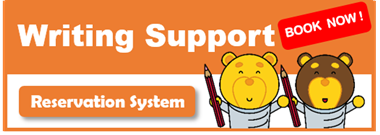WSD User Interview

"If you have any worries about your writing… WSD is always there for you!"
How can we write “academically”?
Tauchi-san, who graduated this Spring having been awarded the Friends of ICU Academic Award (Koya Azumi Award in Sociology) is a former user of WSD! Through attending our Writing Support sessions, she was able to develop her academic writing skills greatly. We interviewed Tauchi-san about her experience with WSD.
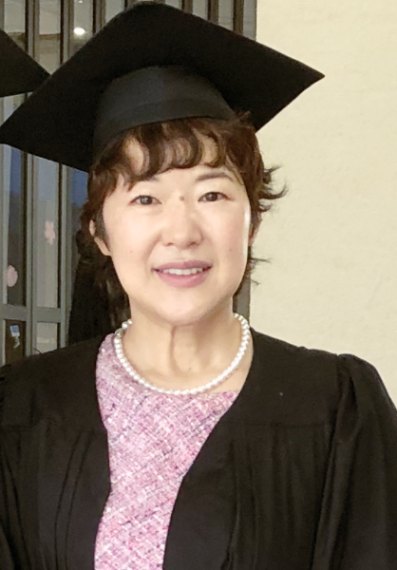
Q: Can you tell us about your experience with Writing Support from matriculation to graduation?
A: In my working life that spanned over 20 years, I developed an interest in the liberal arts and developed a desire to study at university. However, I was not used to writing for academic purposes, so I was worried about my writing skills. In the process of searching for schools that offer writing support, I found ICU. After enrollment, I received help writing my ELA essays, reports for other courses (both in Japanese and English), and even my senior thesis.
Q: Please tell us about your first Writing Support session.
I remember it was in my first year, after receiving an ELA assignment. The task was to summarize a newspaper article titled “Why Go to College at All?” and give my opinion on the paper in 490 words. I decided to discuss this assignment with a WSD tutor.
At the point I met my tutor, I was actually unsure about my own ideas. As I came up with a few ideas off the top of my head, my tutor took notes, and gave me encouragement, saying, "You've come up with plenty of ideas. Now, all you need to do is connect them together."
After the session, looking at the notes that my tutor had taken, I was able to understand the relationship between each of my ideas—I began to add my own notes, and, before I knew it, I had written my first ELA essay.
Q: Did you use Writing Support for writing you did outside of the ELA?
Yes. I used it for Japanese reports too. In my first year during the Autumn Term, I sought help on my final report from history class. The professor told me to format that report in an “academic writing” style. However, I had never written an academic report in Japanese before, and since the class had so many students, I did not have an opportunity to talk to the professor directly. This drove me to use WSD, and this experience let me realize how WSD not only allows us to organize our ideas, but also provides us with practical skills in searching for resources and citing sources accurately. From then on, I regularly made use of WSD.
How Tauchi-san uses WSD
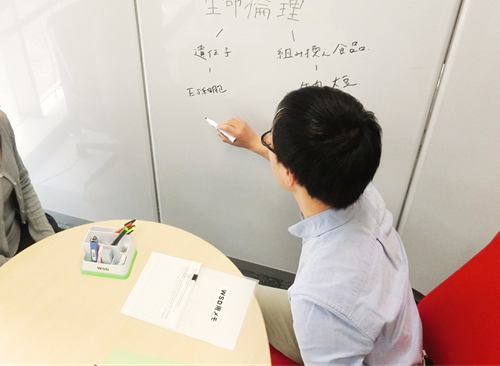 Q: Did you use Writing Support frequently? At what stage of writing did you use it the most?
Q: Did you use Writing Support frequently? At what stage of writing did you use it the most?
I often used Writing Support before setting the theme, and at the final stage of my writing before submitting my work.
For setting the theme, I frequently used the “Walk-in” sessions, where reservation is not required. Even if I did not have anything written on paper, the sessions worked out totally fine. As I discussed my ideas with the tutor and drew some diagrams on a notepad provided by the tutor, I was able to organize what I actually wanted to write.
At the stage where most of the writing was done, the tutor helped me to check if it was structured logically and comprehensively. This process required some time, so I often registered for two sessions in a row.
Q: How did you choose your tutor?
In my first and second years, I enrolled in courses from more than 10 majors; therefore, I thought it would be wise to choose someone whose field of specialty had some overlap with the subject of my writing.
However, when I was writing my senior thesis in sociology, I wanted to produce writing that people who did not belong to the sociology major could understand, and I sought advice from tutors who had not majored in sociology. This was very effective and enabled me, for example, to be more careful in defining terms to ensure that I can convey my thoughts to people who were not very familiar with the theme of my senior thesis, which was "young carers."
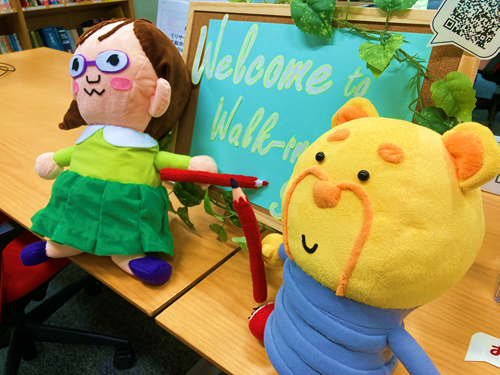 Q: For your senior thesis, you have won the “Friends of ICU Academic Award (Koya Azumi Award in Sociology).” Congratulations! I have also heard that you used the “Library Lectures for Senior Thesis Writers” organized by the library and CTL. How did you utilize such services in writing your senior thesis?
Q: For your senior thesis, you have won the “Friends of ICU Academic Award (Koya Azumi Award in Sociology).” Congratulations! I have also heard that you used the “Library Lectures for Senior Thesis Writers” organized by the library and CTL. How did you utilize such services in writing your senior thesis?
It was my first time writing a very long paper, so I joined the “Library Lectures for Senior Thesis Writers” occasionally, and watched the recordings when I couldn’t attend.
The advice provided in the sessions was very helpful, especially in the context of improving general writing skills, such as planning what to write in each section and how to structure paragraphs. Based on the advice I was given in a WSD session, I would write a part of my senior thesis, come to another WSD session to discuss my work, receive further advice, and continue writing—this cycle facilitated my writing process. Through this experience, I set myself a goal: to make writing a habit and write at least one page a day.
"I saw an improvement in my writing skills."
Q: In what ways has Writing Support enabled you to develop your writing skills?
In many ways. Not only have I developed the ability to cite sources in an appropriate manner and write academically, I have also acquired the ability to structure my writing in a way that allows me to convey specialist content to a general audience.
"I was delighted at the feedback I received from my advisor."
Q: Was there any feedback that you received from your course instructors or senior thesis advisor that was memorable or particularly important to you?
My ELA teacher told me that my arguments were presented in a very logical manner. Also, my senior thesis adviser complimented me on how my thesis clearly defines the presented terms, and on how anyone can understand the content, regardless of their major. I was pleased about that.
Talking about the terms that appeared in my thesis, a tutor would sometimes advise me to “add a short description,” which made me realize the importance of being mindful about how the readers would perceive my writing. Since then, I began including a sentence along the lines of “X means Y in this essay” every time I used a new term in my writing.
Also, the fact that people from other majors checked my thesis helped me a lot.
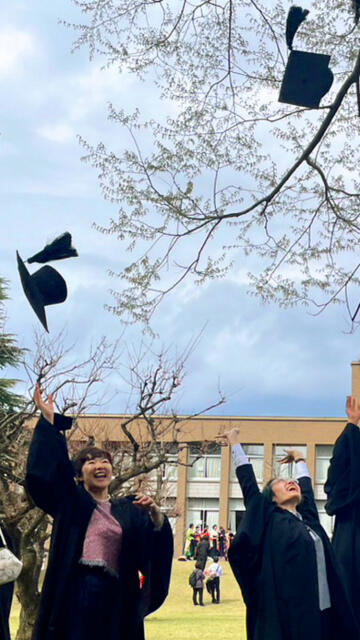 "The conversations I had with my tutors were full of helpful hints."
"The conversations I had with my tutors were full of helpful hints."
Q: Do you have any recommendations regarding how students should use WSD? For example, how frequently should students use it?
I understand that students may be hesitant to use WSD unless they have something concrete that they can show to their tutor. However, I personally recommend students to use WSD especially when they have not yet prepared anything. Often, through the process of discussing our ideas with tutors, our thoughts become clearer and we are able to organize them better. The conversations we have with our tutors help us to glean helpful insights.
During final exam periods, WSD reservation slots tend to fill up quickly, so I reserved my spot early. I used WSD as a “pacemaker” to facilitate my writing, and used Walk-in sessions when I couldn’t secure a spot. Walk-in sessions were helpful and convenient when I only had one or two small questions about my reports.
"Give WSD a try!"
Q: Do you have any final thoughts about WSD that you'd like to share with students?
You may think that you must have a "perfect" piece of writing before you can show your writing to anyone, but that’s not true. It is totally fine to bring unpolished ideas and writing to WSD. WSD tutors are very good at listening. They will guide you, and with their help, you will ultimately become able to develop ideas on your own and write well.
Whenever you're stuck with your writing, reserve a WSD session! WSD is always there for you!


